
Your Ultimate Guide on Sales Tools [2023 Edition]
 Updated on
Updated on
 By Bradley Kovacs
By Bradley Kovacs
Bradley Kovacs
Bradley has been passionate about technology since childhood, starting with Microsoft Flight Simulator at age six. In college, he automated his data e...
learn more
Bradley Kovacs
Bradley has been passionate about technology since childhood, starting with Microsoft Flight Simulator at age six. In college, he automated his data e...
Table of Contents
Table of Contents
Let's set the stage.
You're a salesperson, but you spend the least amount of your time actually selling.
Wait, what?
It's true! There's tons of research out there, but one survey of 721 salespeople found that more than half of their time is spent on anything other than selling. Common offenders include paperwork, managing and updating client information, and following up with existing customers and leads.
So let's get this straight: companies are spending top dollar on talented salespeople, only for them to become bogged down with administrative work, and not doing what they were hired to do — sell.
Imagine getting into a profession that you enjoy, only to spend the majority of your time not actually doing that job, but doing things that actively take you away from doing your job.
Doesn't seem like a good plan for you, or the company you work for.
That's where sales strategy tools come in to save the day.
We're living in the 21st century. Let the robots take over the boring, behind-the-scenes tasks while you get to do more of what you do best.
While the computer is bleep-blooping in the background, you can build relationships, close deals, and pad your pockets. After all, the latest tools for sales will go great with your matte black, self-driving Tesla.
Sound good? Let's get into exploring the ins and outs of sales tools!
What Are Sales Tools?

In short, any kind of software or system that supports the sales process and increases efficiency can be considered a sales tool.
After all, efficiency is the name of the game when it comes to modern sales. Often, the seller that responds first is the one that gets the sale, so having a rock-solid sales process that allows your salespeople to react quickly is a must.
About The A2P DLC10 SMS Legislation
A2P DLC10 SMS legislation is a set of rules and regulations that govern the sending of commercial text messages in the United States. It was put in place to protect consumers from spam and unwanted text messages.
The legislation requires businesses to register their 10DLC phone numbers with The Campaign Registry (TCR). The TCR is a database that keeps track of all registered A2P 10DLC campaigns. Businesses must also obtain consent from recipients before sending them text messages.
If a business does not comply with the A2P DLC10 SMS legislation, its messages may be blocked by mobile carriers. They could also face fines from the TCR or mobile carriers.
On that note, Twilio, a cloud communications platform can help businesses comply with the A2P DLC10 SMS legislation. Twilio's platform includes features that make it easy to register 10DLC phone numbers, obtain consent from recipients, and send compliant text messages.
If you need more information about the A2P DLC10 SMS legislation, you can visit the Twilio website.
Here are some of the key benefits of A2P 10DLC SMS legislation:
- Protects consumers from spam and unwanted text messages.
- Improves the delivery rate of legitimate text messages.
- Reduces the cost of sending text messages.
- Makes it easier for businesses to comply with regulations.
If you are a business that sends text messages, it is important to understand the A2P DLC10 SMS legislation and to comply with it. By doing so, you can protect your customers, improve your delivery rates, and reduce your costs.
Selling is much different these days than it was in the past. Gone are the days of having a salesperson control much of the sales process by themselves manually. Technology, through the form of sales tools, means that salespeople can focus more on selling and less on administration.
There are a lot of day-to-day tasks that take salespeople away from actively selling, like creating reports, scheduling meetings and follow-ups, inputting client data, and more. While these tasks are necessary to the job, there are sales organization tools out there that can automate and streamline these tasks to make the sales process more efficient.
In general, sales tools can help with every stage in a typical sales process, including:
- Gathering information on prospective customers (lead generation software)
- Figuring out which prospects are the most likely to become customers (lead qualifying)
- Determining which products and services fit the customer's needs the best (needs assessment)
- Showcasing the product or service to the customer and explaining how it will meet their needs (pitch or demo)
- Handling any objections the customer may have
- Closing the sale
But in order to understand exactly how the best sales tools help the sales process, we have to look at each type of sales tool and learn more about what each one does.
Types of Tools for Sales
The idea behind sales tools isn't new. Salespeople have been using whatever they can to keep track of their customers from the beginning, whether that be good ol' pen and paper, or something slightly more modern like a Word document or spreadsheet.
Thankfully, modern tools for sales are more efficient, targeted, and useful than ever before, allowing salespeople to keep track of customers in every stage of the sales process.
Let's take a closer look at different types of sales tools and how each one benefits the salesperson and the overall sales process.
|
Types of Sales Tools |
How it Helps the Sales Process |
|
Customer Relationship Management (CRM) |
A CRM allows you to track, manage, and analyze every aspect of a customer relationship, including communication and administration (who the customer is, what they've bought, who they've talked to, etc.) and current and past sales and marketing efforts. |
|
Sales Intelligence Software |
Gives salespeople the information they need to prospect smarter, including real-time data searches, buying signals, and more. |
|
Sales Analytics |
Analytics provide salespeople and managers with sales performance information, including trends, insights, and results. |
|
Sales Acceleration |
Speeds up and adds efficiency to the sales process through task automation, quality sales opportunities, best practices, and more. |
|
Sales Enablement |
Helps salespeople with personalized selling through customer-facing digital portals, microsites, and more with a focus on strengthening customer relationships and a one-to-one sales approach. |
|
Sales Integration Tools |
Allows existing software and tools in a company's tech stack to connect and work together to benefit the overall sales process. |
|
Sales Productivity Tools |
Helps salespeople save time and produce more sales through automations, scheduling, proposal creation, and more. |
|
Marketing Automation |
Helps salespeople with gathering leads and lead nurturing through automated emails, SMS, and highly-targeted campaigns that delight, entice, and keep customers engaged. |
|
Documents and e-signatures |
From contracts to proposals, e-signature, and document software helps salespeople collect signatures and keep track of paperwork easily and efficiently. |
|
Customer and Sales Support Tools |
From preserving customer relationships and providing help and support, customer service helps salespeople by keeping customers satisfied. |
Software that Combines or Enhances Effective Sales Tools
Just because there are a ton of different sales tools and techniques available doesn't mean you have to add 30 more pieces of software to your company's tech stack.
It's important to understand that while we've listed individual tools for sales in the above chart, many effective sales software offerings combine two or more of the above sales tools into one system, making it easier to streamline the sales process without having to switch between different software.
It might not seem like a big deal at first, but we've all experienced the panicked feeling when you have 100 browser tabs open and several programs running at the same time and suddenly need to find something.
Honestly, it's no way to work efficiently.

So which tools for sales offer a combination of features for the price of one? Let's take a closer look at some common offerings.
Sales CRMs
CRMs specifically is a good example of software that combines various tools for sales into one system to better manage customers and provide a better sales experience. CRMs can be extremely powerful and useful sales team tools for salespeople at businesses of all sizes, from small mom-and-pop shops with just a few employees and a small customer base to giant enterprise corporations with hundreds of employees and thousands of customers.
Most modern Sales CRMs, like Ringy, provide sales team tools like a power dialer to save time on calling leads, or task automation to remove the burden of performing some admin tasks, but this absolutely isn't an exhaustive list. There are tons of sales-specific features that CRMs provide, and if the software you choose doesn't do something that you need for your business, chances are integration or app can add that functionality to your system.
Sales Tools Integrations
Let's say you have a sales CRM in place already but have identified some gaps in the native software that if filled, would make your job easier. That's where sales tools integrations come in. Usually offered through APIs or as downloadable apps, sales tools integrations run alongside or behind the scenes to make your existing sales system work even better.
An Application Programming Interface (API) serves as the vital bridge enabling seamless connectivity between your current apps and tools and Ringy's platform. It essentially acts as an intermediary, ensuring flawless data transfer into Ringy's CRM while facilitating effective communication between Ringy and your desired application. For instance, if you wish to continue using a lead vendor that has consistently provided you with valuable prospects, Ringy's API is the solution to effortlessly link your chosen application to Ringy's CRM.
What sets us apart is our commitment to simplifying the API integration process for you. We've streamlined it, making it user-friendly. However, should you require any additional assistance or guidance, our dedicated team is readily available to provide the support you need.
Furthermore, it's worth noting that Ringy offers integration with other popular platforms such as Zapier, Facebook, and Google Calendar, further expanding your options for creating a seamless workflow. Whether it's connecting with Zapier for automation, integrating with Facebook for enhanced social media management, or synchronizing with Google Calendar for efficient scheduling, Ringy empowers you to harness the full potential of these integrations to optimize your CRM experience.
Top Sales Tools Selection Criteria

So now that we've gone through different sales tools and how they work, let's move on to how you should go about choosing the best sales tools for your business.
When you're looking at different sales tools examples, the top criteria you should consider are:
- How they enhance your sales process
- Ease of use
- How they work together or integrate with each other
- Opportunities for collaboration
- Mobile responsiveness
How They Enhance Your Sales Process
It might seem obvious to consider how a sales tool will fit with your sales process before purchasing it, but with so many options out there that promise big things, it's easy to get your head stuck in the clouds and stay focused. It's like working on a creative project and wanting to incorporate too many ideas; at the end of the day, it's often better to set a goal or a few goals and stay on track with meeting those goals, even if it means going the simpler route.
For example, let's say that you've identified that your sales process moves customers through the sales funnel too slowly, and that's because salespeople aren't sure where the customer is in the funnel. Because salespeople don't know how far along a customer is in the sales process, they're asking customers repeat questions, wrong questions, or questions that customers aren't ready to answer.
The online sales tool that you need to solve this problem is a visual sales pipeline, like the one found in Ringy. Ringy's sales pipeline tool specifically allows salespeople to organize leads into “buckets”, with each bucket representing a different stage in the sales cycle. Leads that have already been qualified can go into one bucket, while leads that haven't been contacted yet go into another. This helps everyone stay organized, and ensures customers get helped properly.
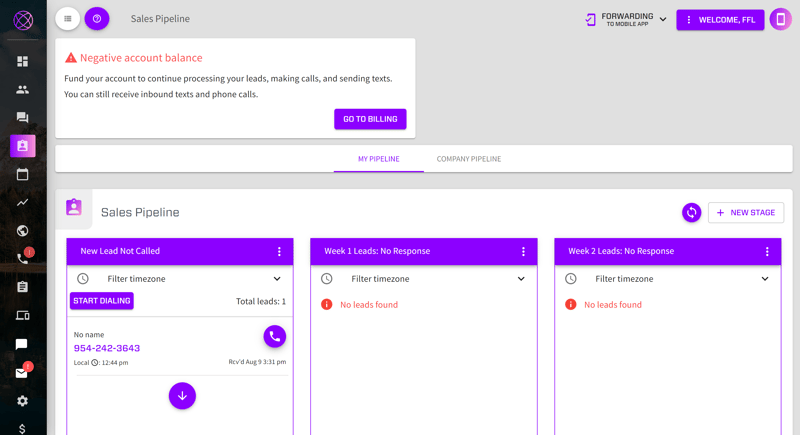
Ease of Use
Nobody wants to use software that's difficult or cumbersome. When a sales tool has a clean, intuitive interface, it not only saves time on training, it makes the experience of using the software better. This way, salespeople can become confident with the software faster and quickly start using it to better the everyday sales process.
Dashboards that let you see a variety of information on one screen often help with ease of use. A 360-degree customer dashboard (gives you a bird's eye view of the customer, including conversation and spending history), sales analytics and performance, and active campaigns are just a few examples of dashboards that would be useful for sales professionals.
How They Work Together or Integrate with Each Other
If you're planning on getting multiple sales organization tools or already have some and want to add more to your tech stack, ensuring that they play nice saves a lot of time and headaches in the future. Many sales tools like Ringy include integration planning, either through a piece of software (like Zapier, for example) or API to connect different software applications together.
Opportunities for Collaboration
Many of us work in silos, and oftentimes that means production just isn't as good as it could be. In fact, 97% of employees and executives alike feel that lack of alignment within teams (read: collaboration) impacts the outcome of a task or project.
Sales organization tools can encourage collaboration between teams, even if they're remote. Things like being able to tag individuals on tasks or projects, like Google docs where you can mention someone and assign them an action to complete or ask a question, or creating a channel in Slack for discussion on everything surrounding one topic are two examples of collaborative and innovative sales tools.
Mobile Responsiveness
These days, being able to work on any device is an absolute must for salespeople, even if they work in inside sales. Do you provide your salespeople with a smartphone? Then why shouldn't they be able to it to access essential sales tools? Being able to access innovative sales tools from your mobile device means that salespeople can double-check customer information during a call, or quickly flag an issue for customer service to look at while waiting in line for a coffee, to provide a couple of examples.
Best Sales Tools Per Industry Vertical
With so many effective sales tools available, it makes sense that some will be focused on certain industries, providing specific features and benefits that make selling easier in that space.
We've gone through the most popular online sales tools and compiled a list of innovative sales tools that cater to specific industry verticals.
Financial Services
In the highly regulated and data-intensive world of financial services, specialized sales tools play a crucial role in streamlining operations and ensuring compliance. Here are some innovative sales tools tailored for the financial services industry:
Salesforce Financial Services
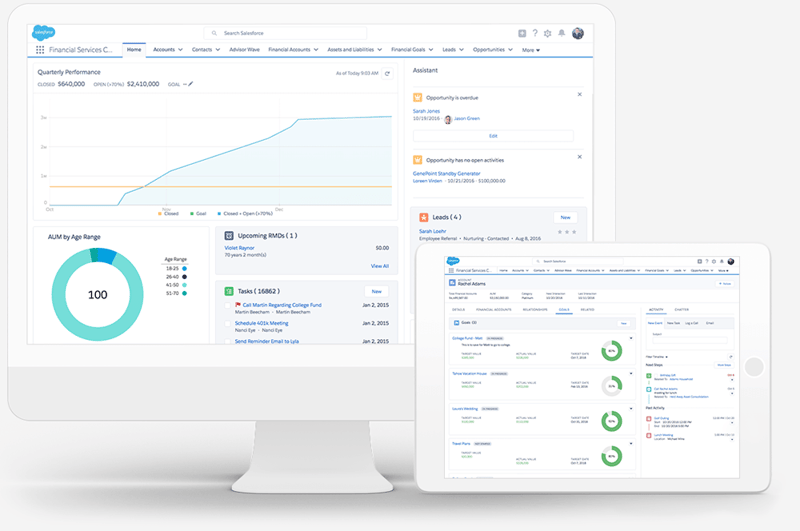
With a full suite of innovative sales tools that are meant to make the client and financial services rep relationship better and more efficient, the Financial CRM from Salesforce is a great choice. As a hub for everything you could possibly want to know and track about your clients, the financial services cloud allows financial services professionals to stay connected with clients through alerts, a powerful customizable dashboard, and mobile responsiveness.
In other words, as a streamlined and focused Salesforce view, the financial services cloud acts as a one-stop shop for developing and keeping track of everything to do with financial services and clients, from wealth management to banking, insurance, and capital markets.
Insurance
In the insurance industry, efficient customer relationship management and data analysis are crucial for success. Sales tools tailored to this sector often prioritize lead management, policy tracking, and compliance. Here are some innovative sales tools designed specifically for the insurance vertical:
Radius
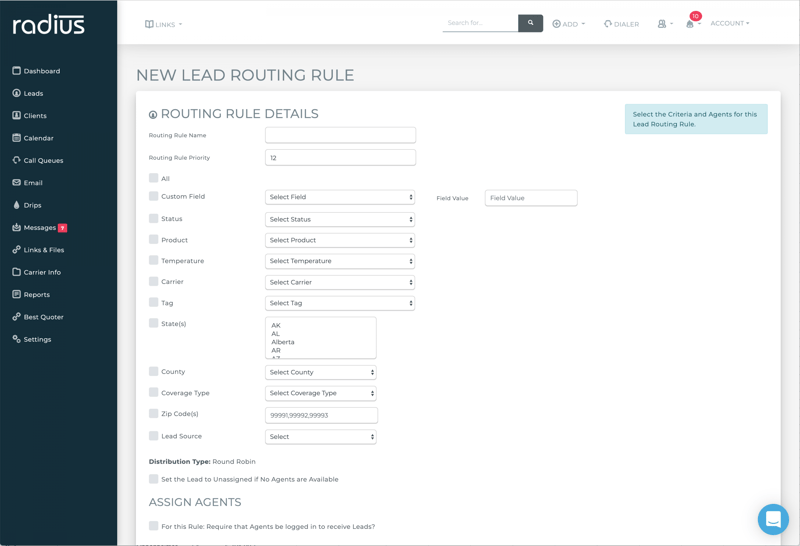
Radius combines popular CRM features into one neat package that caters to insurance professionals. It boasts automation sales tools that cover sales and marketing, plus powerful calling features. But perhaps the most important part of this innovative sales tool is the organization's features. Radius provides a silo for each client, keeping emails, reminders, communications, and other information in one place for each client. You can also use Radius' built-in “Dropbox” tool to automatically import client emails.
Recruiting
When recruiting, efficiency and precision are paramount. Sales tools tailored for this vertical are designed to streamline the hiring process, enhance candidate sourcing, and improve client relationships. Below are some innovative sales tools that excel in the recruiting sector:
Fetcher
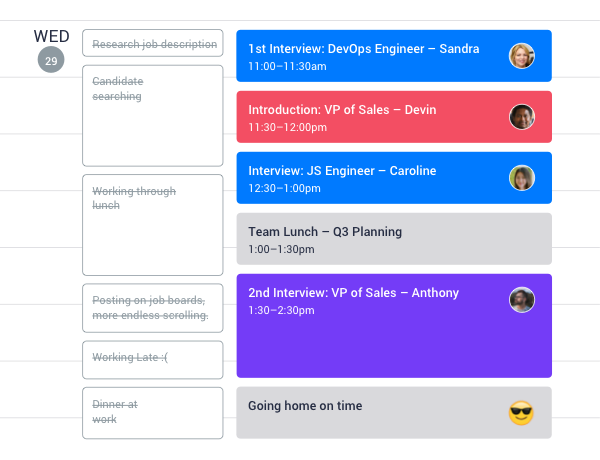
Recruiting these days can be difficult. Many companies have moved to fully remote work environments, meaning the pool of candidates to choose from is much larger. Fetcher uses AI to help internal teams sort through interested candidates and then sends automated emails to engage those candidates, which saves time rather than internal teams needing to reach out to each candidate individually. This helps large companies sort through quality applicants faster and more efficiently than ever.
Lawyers and Legal Services
Sales tools tailored to lawyers and legal services help streamline client acquisition and case management, ensuring that legal professionals can focus on their expertise while optimizing their practice. Here are some innovative sales tools tailored specifically for lawyers and legal services:
Law Ruler
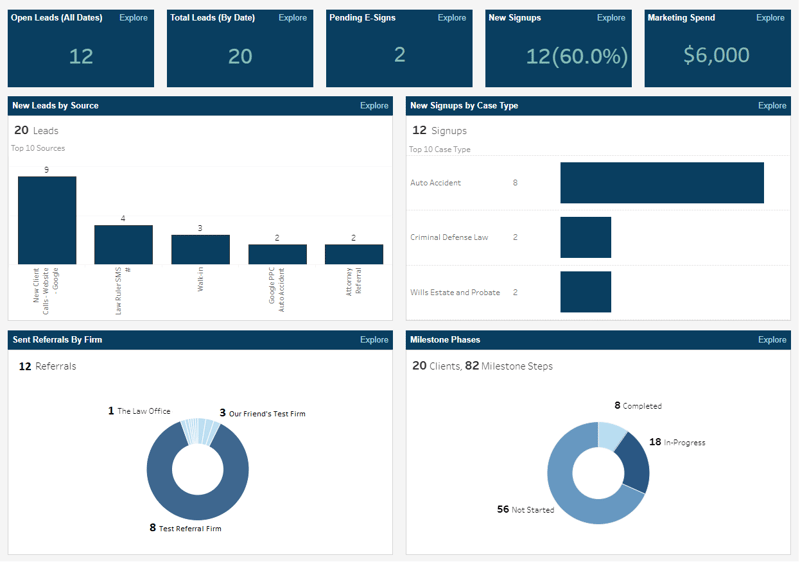
The legal industry is known for being set in its ways. Common quips about the law being ten years behind aren't all that farfetched when some lawyers are still using pen and paper to keep track of clients. Thankfully, there are easy-to-use legal sales tools out there that provide a great entry point into the digital world, and Law Ruler is no exception. As a modern CRM that provides marketing automation, client intake (complete with e-signature collection and document templating), and analytics, Law Ruler has the basic CRM functions that one would expect with a bit more client-facing functionality that suits the needs of legal professionals.
Agencies
Sales professionals often require specialized tools to manage client relationships, streamline project workflows, and deliver outstanding results. As a result, the following sales tools are tailored to the agency industry:
HubSpot
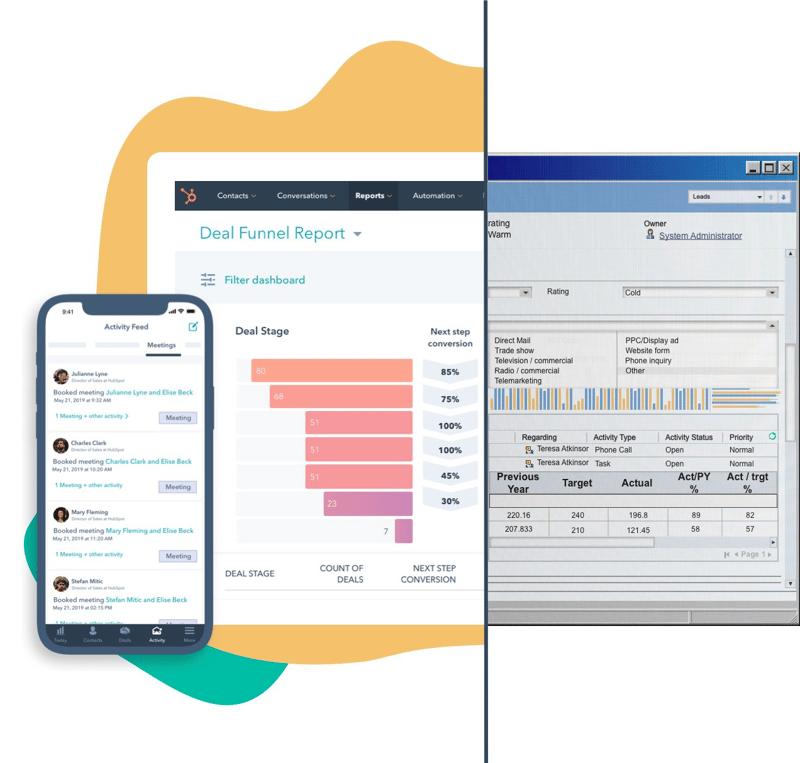
HubSpot needs no introduction — it's one of the most widely used sales tools for agencies of all stripes. HubSpot breaks the system down into “hubs”, so you can focus on sales, marketing, customer service, or web development depending on your business's needs. Need more than one hub? They also offer pricing packages that include common solutions for different agencies and other businesses.
Small Businesses
Small businesses often have unique needs when it comes to sales tools. They require solutions that are cost-effective, easy to use, and adaptable to their evolving sales processes. So, these sales tools meet the specific needs of small businesses:
Pipedrive
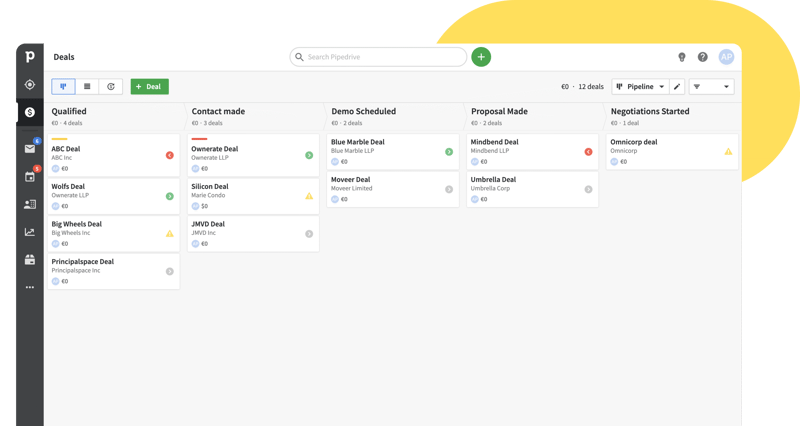
Pipedrive is a very sales-focused and easy-to-use CRM, combining online sales tools with great functionality for sorting through your incoming leads and narrowing down the best ones to filter to your sales team. Small businesses can benefit from its low price tag and ability to scale, meaning the software will grow with you as your business and sales team scales up.
Startups
For startups, navigating the challenging landscape of initial growth and customer acquisition is paramount. Sales tools tailored to this industry vertical often prioritize agility, cost-effectiveness, and scalability. Let’s look at which tools suffice here:
Agile CRM
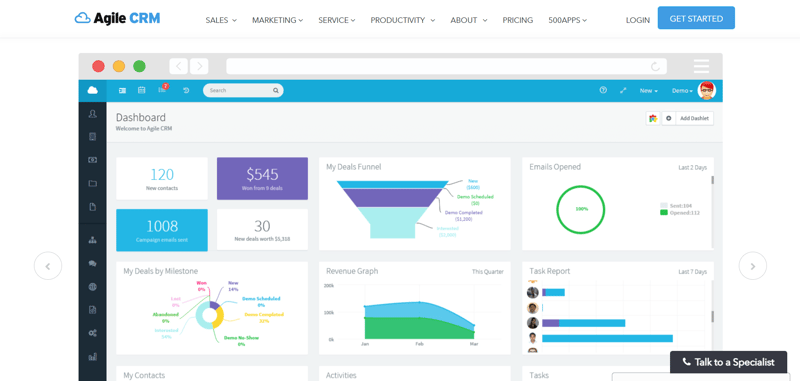
The best sales tools for startups typically share a few common characteristics, including being affordable, easy to use, and quick to implement. Agile CRM fits into all those categories. As a straightforward CRM that encourages your sales team to sell more with fun features like gamification, Agile takes startup growth and management seriously.
Best Jack of All Trades
The "Jack of All Trades" category includes versatile sales tools that can benefit a wide range of industries. These tools offer a broad spectrum of features and functionalities, making them suitable for businesses in various verticals. Whether you're in e-commerce, healthcare, or real estate, these tools can adapt to your unique needs, making them essential for any sales professional looking for flexibility and efficiency.
Allow us to discuss the top contenders here:
Ringy
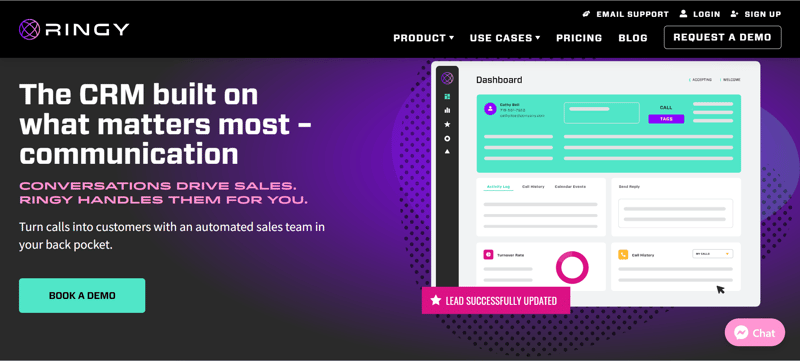
You just knew we were going to mention Ringy at some point, but it's for good reason. Our CRM combines popular sales tools, like lead management and generation, marketing automation, and calling features into one, easy-to-use platform. Ringy can really cater to multiple different types of businesses, including insurance, agencies, small businesses, and more with it's affordability (only $109 per month for ALL CRM features, and no limit on users), modern functionality, and ability to integrate with popular applications and software suites like Google.
Conclusion
Everyone wants tools that can make their job easier and more efficient, and salespeople are no exception. When it comes to choosing effective sales tools for your business, you need to take the time to not only make a list of features and benefits that you are looking for, but also research different sales tools examples to find the best combination of price, features offered, and ability to scale.
With so many tools for sales out there, it can sometimes feel overwhelming trying to choose the most effective ones (and not add 20 or 30 applications to your tech stack). That's why a CRM is often a great starting point, as it usually includes a variety of types of sales tools that can benefit any sales team and business.
Ready to get started with one of the top sales tools in the market? Schedule a demo with Ringy today and we'll walk you through our software.

Skyrocket your sales with the CRM that does it all.
Calling? Check. SMS? Check. Automation and AI? Check. Effortlessly keep in touch with your customers and boost your revenue without limits.

Take your sales to new heights with Ringy.
Sales in a slump? Ringy gives you the tools and flexibility you need to capture leads, engage with them, and turn them into customers.
Subscribe to Our Blog
Enter your email to get the latest updates sent straight to your inbox!
Categories
Related Articles


































































































